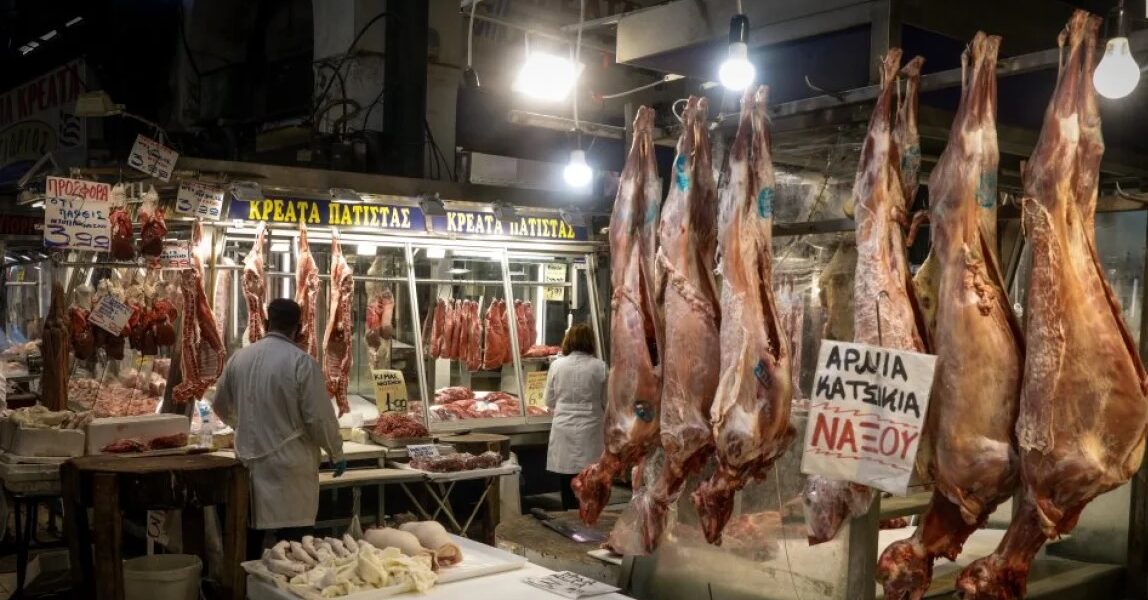The president of the Kastoria Livestock Cooperative of Cereal and Livestock Products spoke to AMNA about Greek lambs on the local market ahead of the Easter holidays despite increased exports taking place this year from January, earlier than any other year.
Dimitris Moschos, vice president of the Hellenic Livestock Association (SEK), stressed that the consumer price is expected to be higher than last year.
As he explained, due to shortages in foreign markets - including Italy, France, Austria, Spain and Portugal - this year, from January until yesterday, Greek livestock farmers exported at least 20% more lambs compared to 60,000 last year. This was at a price of more than 8.50 euros/kg.
Indicatively, he even mentioned that last week, Greek lambs were sold on the Italian retail market, at a price of 18 euros/kg.
With production costs close to ten euros per kilo this year, compared to 8.5-9 euros/kg last year, Moschos noted that Greek breeders cannot "under any circumstances" make lamb goats available for Easter this year at a cost below of nine euros/kilo."
He added that "by selling at this price, compared to 7.5 euros/kilo last year, we Greek breeders lose again, since not only do we not put it in our pockets, but not even the production costs we draw."
He clarified, "our decision to sell lamb at the price of 9 euros/kg, lies in the perceived difficulty of the Greek citizens in the midst of precision on all fronts," he said, estimating that the final consumer price for Greek lambs will ranges at 13-14 euros/kg, close to last year when it was 12-13.5 euros/kg.
The SEC vice-president reiterated the opposition of the Greek breeders to the inclusion of the Greek lambs in the household basket, saying that "if an attempt is made to sell the lamb at a price close to ten euros/kilo, this will end the small butchers, who support as partners, the people of the livestock sector".
In order to deal with the accuracy that burdens both producers and consumers, the SEC has repeatedly requested a reduction or zero VAT rate on the basic types of food until the end of the year, support for animal husbandry with an aid of 160 million euros for addressing the increase in production costs, intensifying controls on imported lambs (from Romania, etc.) that are Hellenised and taking support measures for butchers, so that they, in turn, can maintain or even reduce their selling prices.
Among other things, Mr. Moschos underlined the need to make controls more strict and intensive in view of the Easter holidays, even saying that the lack of government support for the meat market and cattle breeding, "will cost us dearly in the next two months, when it is expected that there will be an increase in beef by at least 30% as a result of a reduction in production abroad".
READ MORE: Stefanos Saratsis: The "Greek Salt Bae" who has won TikTok.

